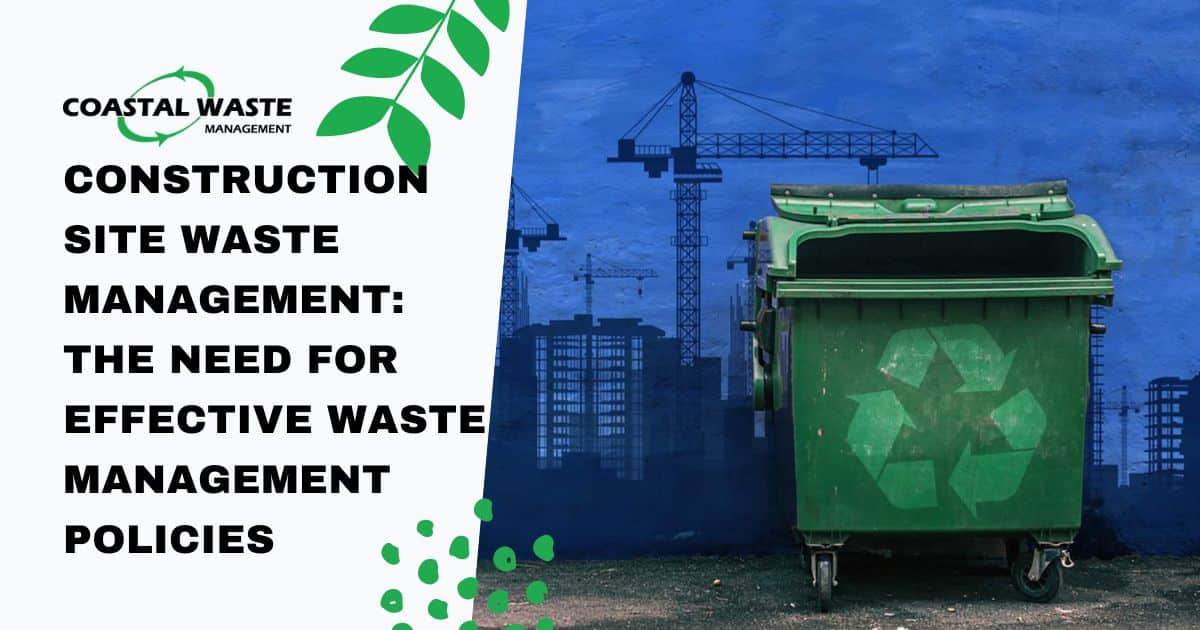
Construction sites in Australia churn out a ton of waste. It’s staggering!
Each year, the construction industry spits out over 27 million tonnes of waste, accounting for almost half of the country’s total garbage. What exactly does this waste consist of?
Well, it’s a mishmash of stuff like building supplies, plastics, tyres, paper, and even hazardous waste. Managing all this mess is crucial, which is where construction site waste management comes into play.
It’s a big problem that needs fixing. To tackle this issue, the Australian government came up with a National Waste Policy.
The idea is to work together to create a circular economy where we use less, recycle more, and make better choices about the materials we use. This not only helps the environment but also boosts the economy.
There’s a simple principle guiding how we handle waste at construction sites:
- Avoid
- Reduce
- Reuse
- Recycle
It means we try to produce less waste in the first place, use what we have more efficiently, find ways to reuse materials and recycle whatever we can. One big win in this effort is recycling concrete, which can be used again in new construction projects, like building roads.
Let’s look at Western Australia as an example. They’ve set ambitious goals to reduce waste and increase recycling.
They’ve put in place Construction Waste Management Plans to guide how waste is handled during projects. These plans help to minimise waste, encourage reusing and recycling materials, and make sure as little as possible ends up in landfills.
Western Australia also has specific targets to reduce construction and demolition waste and recover more materials by 2030. They’re serious about it, even requiring site-specific management plans to deal with any potential environmental issues.
As technology improves, we’re finding better ways to manage waste too. Things like advanced sorting systems and better tracking tools help us keep track of materials and recycle more efficiently.
Alright, let’s talk about handling waste on construction sites. It’s not just about following rules; it’s about being smarter with what we’ve got.
When we cut down on waste, reuse stuff, and recycle as much as possible, we’re not only helping the environment but also setting the stage for a more sustainable future for everyone.
Think about it this way: every time we throw something away on a construction site, it’s like tossing out money and resources. But with Skip Bin Hire Perth, like the one Coastal Waste Management has in Perth, we can make sure we’re not just chucking things out unnecessarily.
By being mindful of what we toss and finding ways to reuse materials, we’re not just saving money; we’re also cutting down on the strain we put on the environment. It’s a win-win situation.
So, let’s keep it simple:
- Less waste
- More recycling
- Smarter use of resources
That’s the key to building a better, greener future for all of us.
Related Articles:

